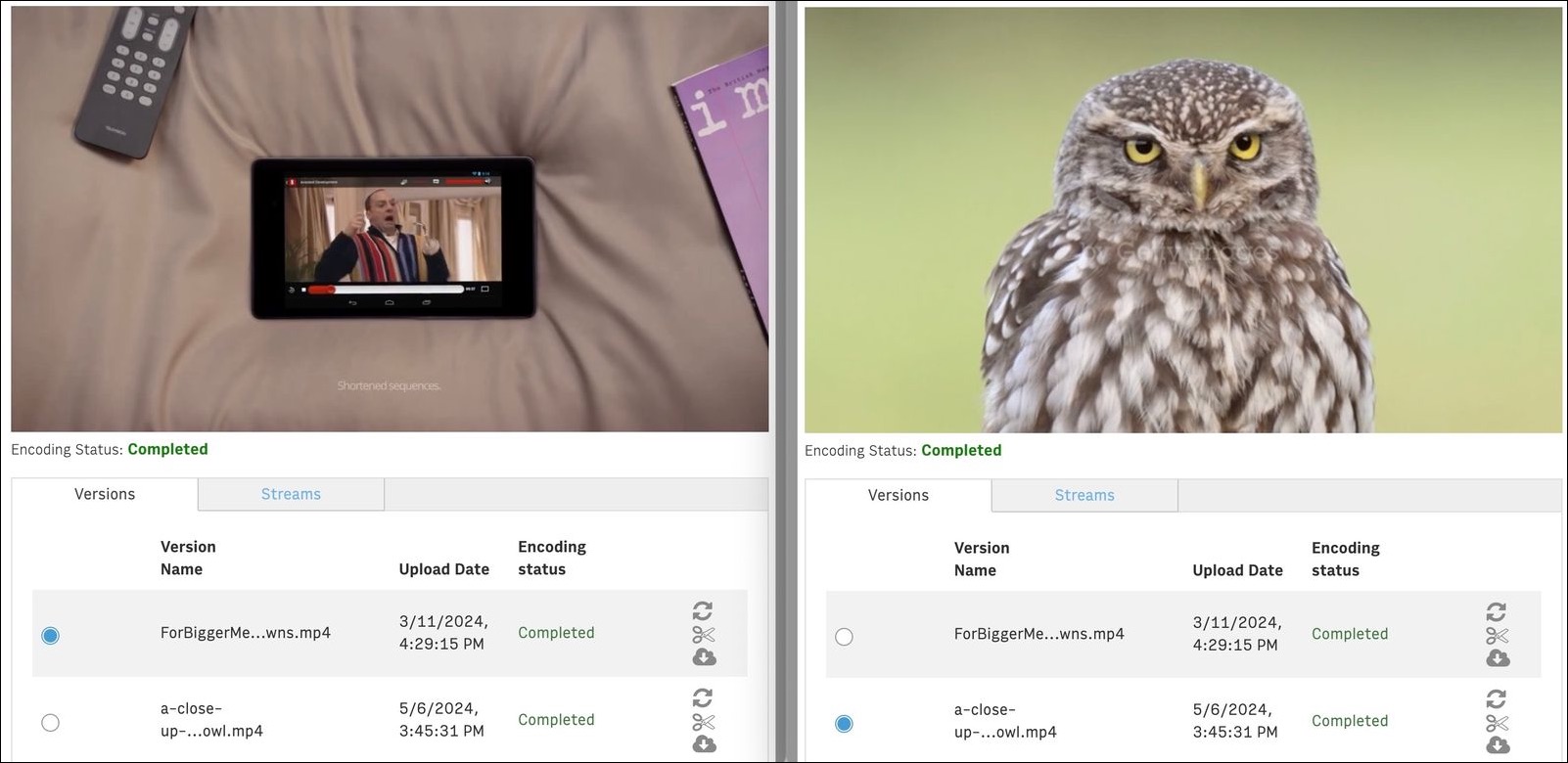Update Video ANS Programmatically
You can create videos in Arc XP programmatically by sending video ANS to Video Center API or to Migration Center API. You can use the same API endpoints to edit the non-binary metadata of a video, change video circulations, change the image for the promo item, or add a new video binary file to the video object.
To perform any of these changes, take the following steps:
- Fetch the video’s ANS from either Content API or Video Center API.
- Edit the video’s ANS according to the sections on this page.
- Remove unnecessary ANS keys. See ANS keys to remove when updating a video
- POST the full ANS object to the
/import/ansendpoint of the Video Center API.
Changing a video’s circulations
To change a video’s circulations, you must rewrite the following keys in the video ANS:
taxonomy.primary_sectiontaxonomy.sectionswebsites.{site id}
Changing a video’s promotional item
Content API returns two ANS keys with promotional image data; however, only the promo_items.basic key is valid when creating or updating a video. The promo_image key contains duplicate promotional image data for backward compatibility.
You can update promo_items.basic to create a new promotional image or to update an existing promotional image. You cannot delete a promotional image completely from the video, leaving it empty. After it is set, a promotional image always returns in video ANS. Similarly, you cannot set the promotional image to one already created in Photo Center.
See How to write the minimum ANS for a viable video document for more information about the promo_items.basic ANS key.
Adding a new video binary
To replace a video, you can send a new binary file through the streams key. This action adds a new video version and sets that version as the active video version, moving the previous binary down in a list of versions visible in the Video Center application.
When you request the video ANS from the Content API, the active version is the information that is populated in the streams key in the ANS. Inactive versions aren’t represented in the video ANS at all. However, in the Video Center application, a Versions tab lists all the video binary files associated with the video object. You can switch between these versions in the Video Center application. The version you select in the application is the version that appears in the ANS streams key.


Editing video metadata
Remove the streams key from the ANS when making updates other than creating a new video version. The existing imported video is not affected when you send video ANS updates without the streams key. You can avoid unintended transcoding, duplicate versions, and the costs of transcoding and video storage by leaving off the streams key. Therefore, it is best practice to format the ANS for a video update and leave off the streams key unless necessary as metadata updates process faster and more cleanly.
Other keys exist in the video ANS that you cannot update because the system automatically generates their values. You can remove these fields from the updated ANS to be intentional about what data you are passing and reduce uncertainty. However, if these keys remain in the ANS that is sent to an update, they are ignored.
ANS Keys to remove when updating a video
streams | Unless intentionally updating to add a new video binary version, remove this key from the ANS. |
promo_image | This key is set to the same value as promo_items.basic |
taxonomy.primary_sitetaxonomy.sites | Arc XP sets these keys to be the same values as taxonomy.primary_section and taxonomy.sections |
canonical_url | Arc XP sets this key to the URL that the Canonical URL Service creates |
created_datelast_updated_datefirst_publish_date | The system automatically generates the values for these keys |
embed_html | The system automatically generates the HTML code in this key |
duration | The system automatically sets the value for this key the first time a video binary is created |
tracking | The system automatically sets this key’s value |

